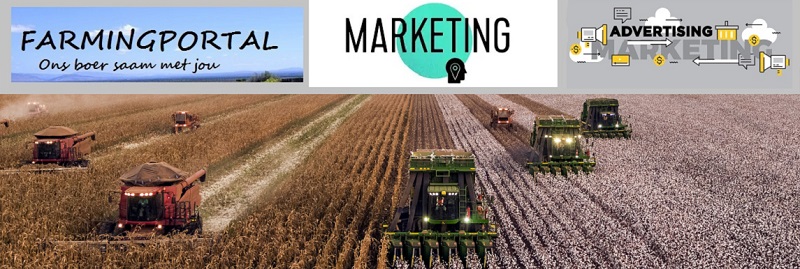As drought and floods wreak havoc across Brazil, farmers are feeling the effects of the climate emergency but despite poor harvests and rotting crops, they are fighting to protect their right to fell more trees and convert grasslands.
The southern Rio Grande do Sul state offers a clear example of the damage wrought by consecutive disasters: after prolonged droughts, analysts were predicting a record soybean harvest this year but instead the area was hit by devastating floods in June.
About 170 people were killed and half-a-million people were driven from their homes. The floods also wiped out crops, with farmers predicting a drop of up to 15% in the soybean harvest in the world’s top grower.
“I now have debt from the droughts and from last year’s crop,” said Graziele de Camargo, a soy and wheat producer in Sao Sepe municipality who had invested heavily to try to make up for previous losses.
“But I haven’t reaped anything,” said Camargo, a leader of the SOS Agro movement, which is seeking financial help from the government to cope with the effects of the climate crisis.
Farmers are also under pressure in Brazil’s midwest, a grains powerhouse, and in the north where drought has damaged crops while wildfires have also raged. And they are bracing for more fires over the coming months.
Last year’s drought was the most severe on record in the Amazon. River levels fell sharply, disrupting shipments of grain for export.
Brazil’s food supply agency Conab now says grain production is likely to fall 7% in 2023/24, a downward revision from its initial forecast of a 1% fall.
Often reluctant
Climate change cost the agricultural sector 240-billion reais ($44.3bn) between 2020 and 2023, according to analysis of government data carried out by Eduardo Monteiro, leading researcher on climate risk at the agricultural research agency Embrapa.
That is 2.5 times more than in the previous four years but farmers in the world’s seventh-largest emitter of greenhouse gases are often reluctant to discuss climate change, Monteiro said.
“In many agribusiness strongholds”, he said, farmers see climate change as an excuse to promote “conservationist practices”.
And even though she has seen the effects of the climate emergency herself, Camargo does not believe the farming sector needs to change.
“Many say that ‘agro’ is responsible for climate change but this is a normal change. Eighty years ago there have been floods, it is part of a global cycle.”
Scientists said climate change made the flooding in Rio Grande do Sul twice as likely to happen and they warn that climate change, deforestation, fires and other human impacts are pushing the Amazon to a “tipping point” that could turn it into a drier environment resembling a savannah.
But Marcelo Bertoni, president of the Federation of Cattle Ranching and Agriculture in the Mato Grosso do Sul state, said that weather extremes were a normal part of farmers’ business.
 How forest fires also have an impact on lakes
How forest fires also have an impact on lakes
“I am not a climate change denier”, he said, but “society has always been through cycles of droughts and floods … fires will always exist.
Forest conversion
“Farmers are used to losses and gains, and with all that is happening we are still the biggest [soybean] producers in the world.”
About 76% of Brazil’s emissions are caused by ranching and the conversion of forests and other wild spaces to farmland, according to a 2022 assessment from the Greenhouse Gas Emissions and Removals Estimation System.
When forests are cut down, the planet-heating carbon stored in their trees is released into the atmosphere if they rot or are burnt, contributing to global warming.
But farmers are pushing back against calls to rein in deforestation and land conversion. They say that Brazil’s 2012 Forest Code guarantees their right to cut down trees on sections of their properties.
Many farmers are also undeterred by international efforts to stop deforestation, such as the European Union’s Regulation on Deforestation Free Products (EUDR), which will bar agricultural products produced on recently deforested land from entering the bloc from December.
Such bans “come from American and European [environmental] foundations, and we don’t even sell to them,” said Luis Marasca Fuchs, vice-president of the Rio Grande do Sul section of Aprosoja, the association of soybean growers.
“Our markets are much more in China and the Middle East,” he said.
Crops and pastures now cover 33% of Brazil’s territory, according to data from MapBiomas, a collaboration between universities, nonprofits and technology firms, and this area is expanding, legally and illegally.
Limiting claims
Under the Forest Code, about 85-million hectares within private properties could be legally deforested, according to analysis from the Forest Code Observatory.
Last year, legislators with ties to agribusiness championed and passed a bill limiting Indigenous land claims, which may free up further areas for conversion to farmland.
Brazil’s Supreme Court is expected to decide if the law is constitutional, but there is still no date for a ruling. And now profarming legislators are trying to change the constitution to bypass an eventual ruling by the country’s top court.
And there are more threats to nature on the horizon.
The Climate Observatory, a network of Brazilian environmental NGOs, found that there were 25 bills and three proposed constitutional amendments that could expand what is considered legal deforestation, including in the Amazon, if passed.
Under current rules, private properties in the Amazon biome must protect the natural vegetation on 80% of their land but a new bill would reduce that threshold to 50% in municipalities where half of the territory is already protected as natural reserves.
In a written response to questions from the Thomson Reuters Foundation, the Parliamentary Agricultural Front, the most powerful Congressional caucus, said the bill sought a “balance between environmental conservation and economic development in the Amazon region”.
The group, whose members account for about half of the lower house and two-thirds of Senate seats, said it recognised the “undeniable reality” of climate change but added that “the environmentalist caucus exploits human disaster” to get more attention.
As legislators ponder the new bills, farmers continue to count the costs of the recent floods.
In Caxias do Sul municipality, Valmir Susin, whose lettuce, chicory and arugula were rotting under still cloudy skies, said farms would need years of investment to recover, and some people would just abandon their land.
“Many producers will flee,” he said.















